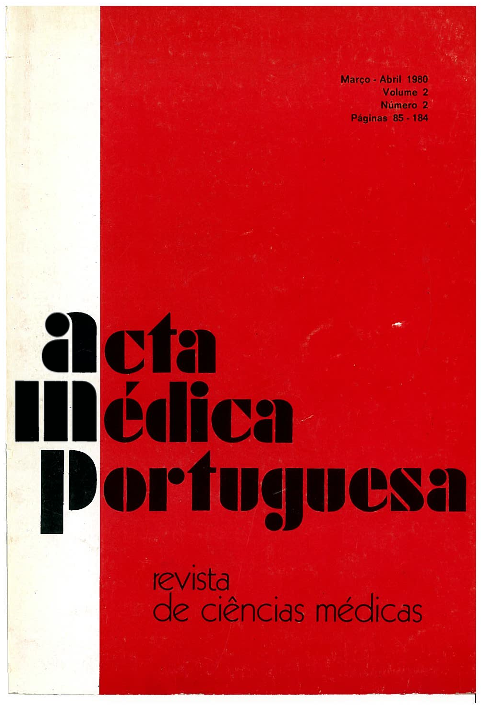Is ist possible to lower the lethality rate of tetanus?
DOI:
https://doi.org/10.20344/amp.3931Resumo
The lethality rate of tetanus in Portugal is 55 %, and about 165 cases are notified yearly. In the last ten years, 1968-77, 299 cases of tetanus were treated in the ICU of the Coimbra University Hospital, with a lethality rate of 28,4 %. However, in the last 2 years (53 cases) the lethality rate was 20,8%. This difference is not significant (c2 = 1,4). A shift towards the older age groups is now accepted. Of the 299 tetanus cases 113 were aged 60 or more (37,7%). The lethality rates in this age group were:
60-69……………………….71 cases 29,6 %
70-74……………………… 27 cases 40,7 %
≥ 75……………………….15 cases 66,7%
Of the 53 cases treated in the last 2 years, 27 were over 60 years (50,9%). The patients aged between 60 and 69 hardly affect the overall lethality. The increase is more evident in the age groups above 70. The tendency for the disease to occur in patients over 60, associated invariably with chronic disease, poor cardiovascular or pulmonary status, diminished defenses, etc., favours the occurrence of the serious complications of the process as well as those derived from intensive care management. We therefore do not feel that there will be a reduction in the lethality rate with the present therapeutic possibilities.
Downloads
Downloads
Como Citar
Edição
Secção
Licença
Todos os artigos publicados na AMP são de acesso aberto e cumprem os requisitos das agências de financiamento ou instituições académicas. Relativamente à utilização por terceiros a AMP rege-se pelos termos da licença Creative Commons ‘Atribuição – Uso Não-Comercial – (CC-BY-NC)’.
É da responsabilidade do autor obter permissão para reproduzir figuras, tabelas, etc., de outras publicações. Após a aceitação de um artigo, os autores serão convidados a preencher uma “Declaração de Responsabilidade Autoral e Partilha de Direitos de Autor “(http://www.actamedicaportuguesa.com/info/AMP-NormasPublicacao.pdf) e a “Declaração de Potenciais Conflitos de Interesse” (http://www.icmje.org/conflicts-of-interest) do ICMJE. Será enviado um e-mail ao autor correspondente, confirmando a receção do manuscrito.
Após a publicação, os autores ficam autorizados a disponibilizar os seus artigos em repositórios das suas instituições de origem, desde que mencionem sempre onde foram publicados e de acordo com a licença Creative Commons









